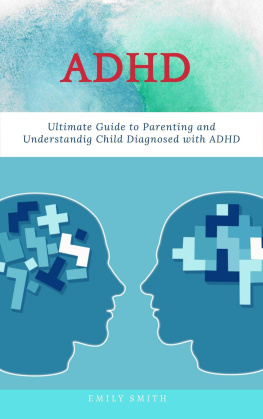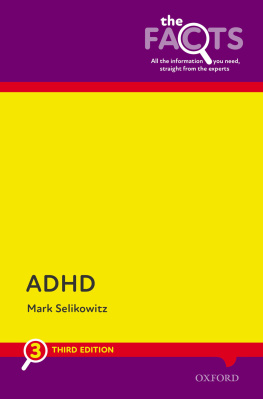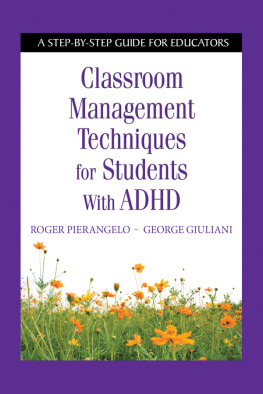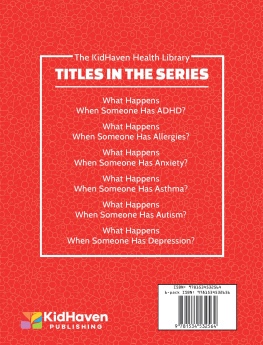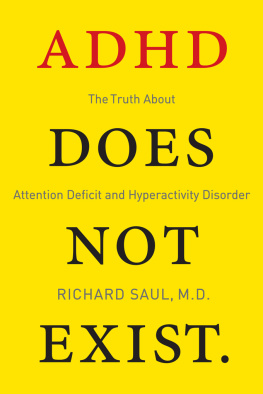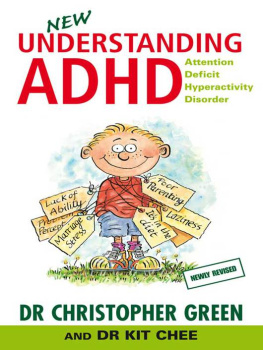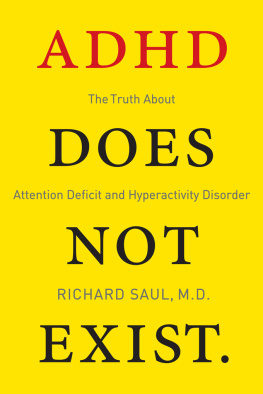
Published in 2020 by The Rosen Publishing Group, Inc.
29 East 21st Street, New York, NY 10010
Cataloging-in-Publication Data
Names: Duhig, Holly.
Title: A book about ADHD / Holly Duhig.
Description: New York: PowerKids Press, 2020. | Series: Healthy minds | Includes glossary and index.
Identifiers: ISBN 9781725314566 (pbk.) | ISBN 9781725314580 (library bound) | ISBN 9781725314573 (6 pack)
Subjects: LCSH: Attention-deficit hyperactivity disorder--Juvenile literature.
Classification: LCC RJ506.H9 D84 2020 | DDC 618.928589--dc23
Copyright 2019 Booklife Publishing
This edition is published by arrangement with Booklife Publishing
Written by: Holly Duhig
Edited by: Madeline Tyler
Designed by: Danielle Jones
PHOTOCREDITS
Front Cover Elena Nichizhenova. , unless stated otherwise. With thanks to Getty Images, Thinkstock Photo and iStockphoto.
All rights reserved. No part of this book may be reproduced in any form without permission in writing from the publisher, except by a reviewer.
Manufactured in the United States of America
CPSIA Compliance Information: Batch #CW20PK: For Further Information contact Rosen Publishing,
New York, New York at 1-800-237-9932.
CONTENTS
Words that look like THIS are explained in the glossary on page .
WHAT IS ADHD?
ADHD stands for attention , and hyperactivity. While everyone has difficulty staying focused or waiting their turn sometimes, these sorts of problems affect people with ADHD all the time. This can make things difficult at home, at school, and with friends and family.
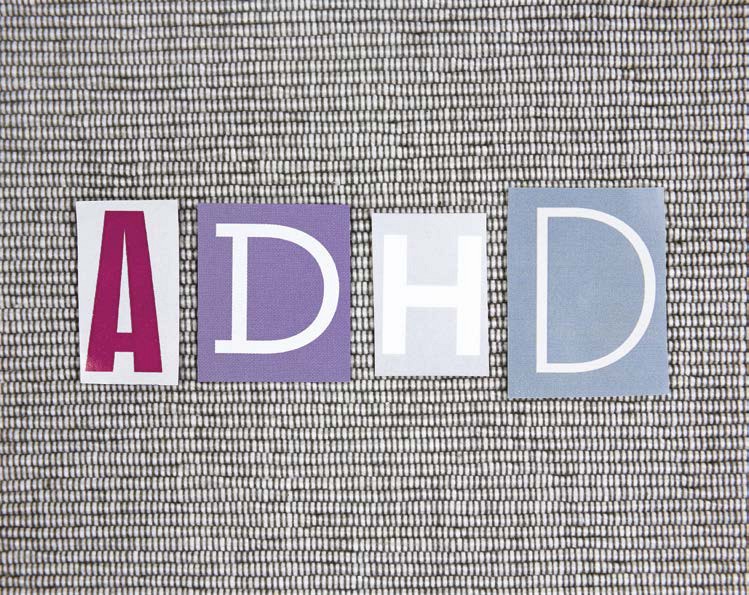
Some people have ADD, which stands for attention deficit disorder. This is similar to ADHD, but without hyperactivity. If someone is hyperactive, it means that they have trouble staying still and quiet. They might be fidgety, restless, and get bored easily. People with ADD dont have as much difficulty with hyperactivity, but they do struggle with paying attention, organization, and memory.

People of any age can have ADHD, but people first show signs of it when they are still young and often when they are in school.

People with ADHD will process information differently in their brains than people without it. This means that if you have ADHD, it can feel very busy in your head, like your thoughts are racing and theres no way of making them slow down. While someone without ADHD might be able to block out other thoughts while they are doing something important like getting ready to leave the house or doing schoolwork, people with ADHD find this much harder.
ADHD can make it hard to remember things like what time an appointment is, what needs to be done next in a list of tasks, and even what things you need in your bag before you leave home for the day. Forgetfulness can lead to people with ADHD getting in trouble at school more often than their classmates. People with ADHD dont mean to get in trouble and will often try very hard not to.

The average age that people are with ADHD is SEVEN years old.
TRAITS AND SYMPTOMS OF ADHD
There are three main types of ADHD, and each of them have different traits and .
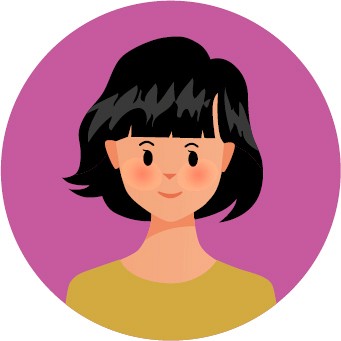
Hyperactive-Impulsive Type
Fidgeting
Trouble paying attention
Trouble playing quietly
Talkative
Blurting things out
Interrupting others
Running around and needing to be active

Inattentive Type
A person with this type is often said to have ADD rather than ADHD.
Daydreaming
Making careless mistakes
Trouble paying attention
Trouble listening
Forgetfulness
Losing things that you need
Avoiding tasks that take lots of time or

Combined Type
The most common type of ADHD is the combined type. People with the combined type have symptoms of both inattentive and hyperactive-impulsive types.
or hard to control. People with ADHD dont just have difficulties with attention, either. Other things such as timekeeping, planning, and managing emotions are all affected by ADHD. Experts think that people with ADHD see time in a different way than people without it. A particular length of time is not always a solid thing for someone with ADHD, but rather something that feels FLEXIBLE. This makes it hard to estimate what can be done in 15 minutes or how long they have until they have to leave the house.

People with ADHD might find themselves unaware of how much time is passing when they are deeply focused on something.
HOW ADHD FEELS

ADHD AND THE BRAIN
Parts of the brain develop differently in people with ADHD than in people without it. This leads to differences in all sorts of . The brain functions most affected by ADHD are called executive functions. These are:
Working Memory This means the ability to hold things in your short-term memory or holding onto facts while learning new information.
Self-control This means the ability to understand other points of view, and process emotions rather than acting impulsively on them.
FLexible thinking This is all about being able to think about things in more than one way and cope with changes in plans and ROUTINES.
People who have trouble with executive functions might:
Have trouble starting or completing tasks
Forget what theyve just read or just heard
Find following sets of instructions difficult
Have trouble switching between tasks
Get very emotional about certain things
Find it hard to keep track of their belongings

Lots of research has been done into which parts of the brain work differently in those with ADHD. Many scientists now believe many ADHD traits are caused by a shortage of certain CHEMICAL messengers in the brain. These chemical messengers are called neurotransmitters.
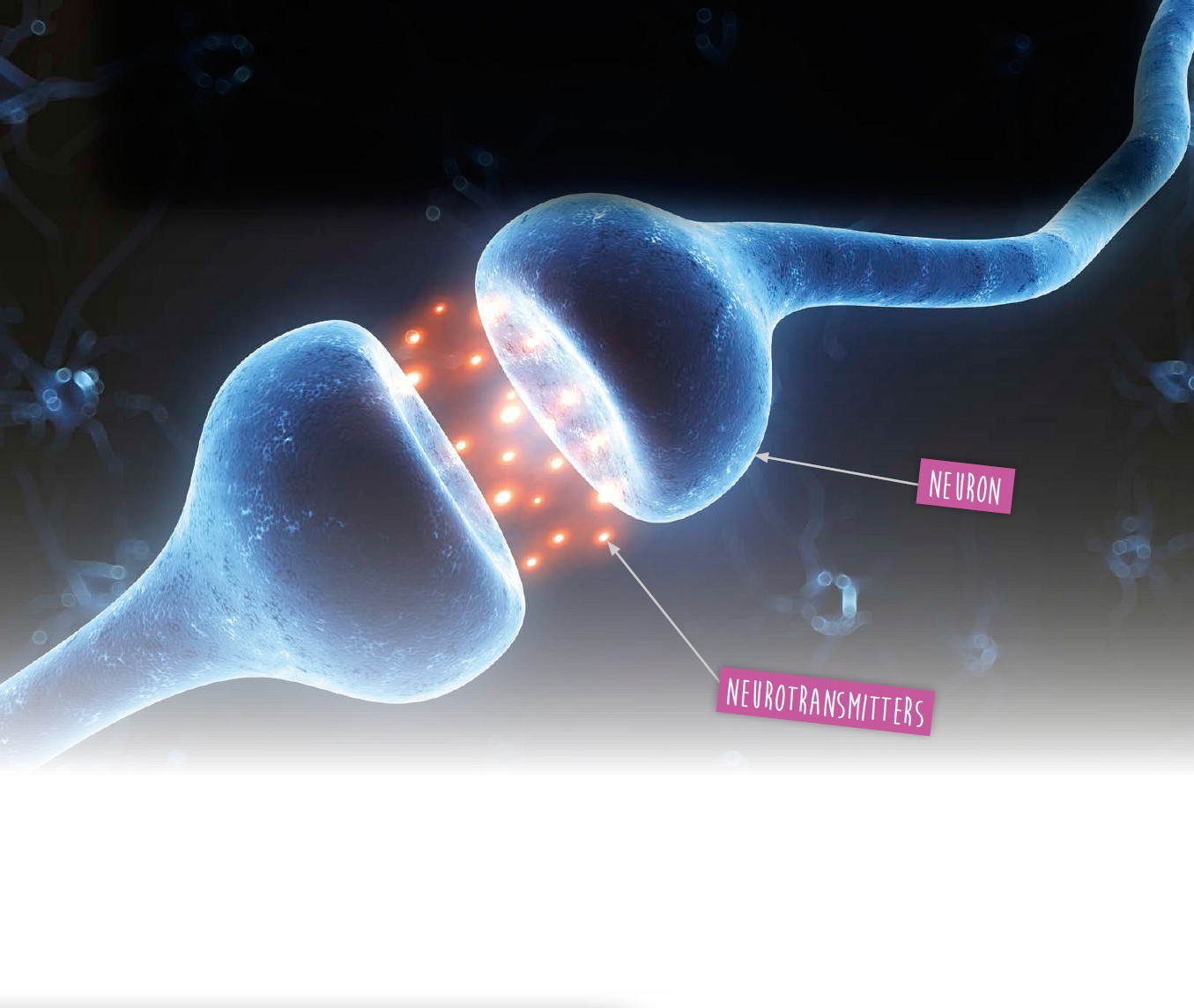
Next page




